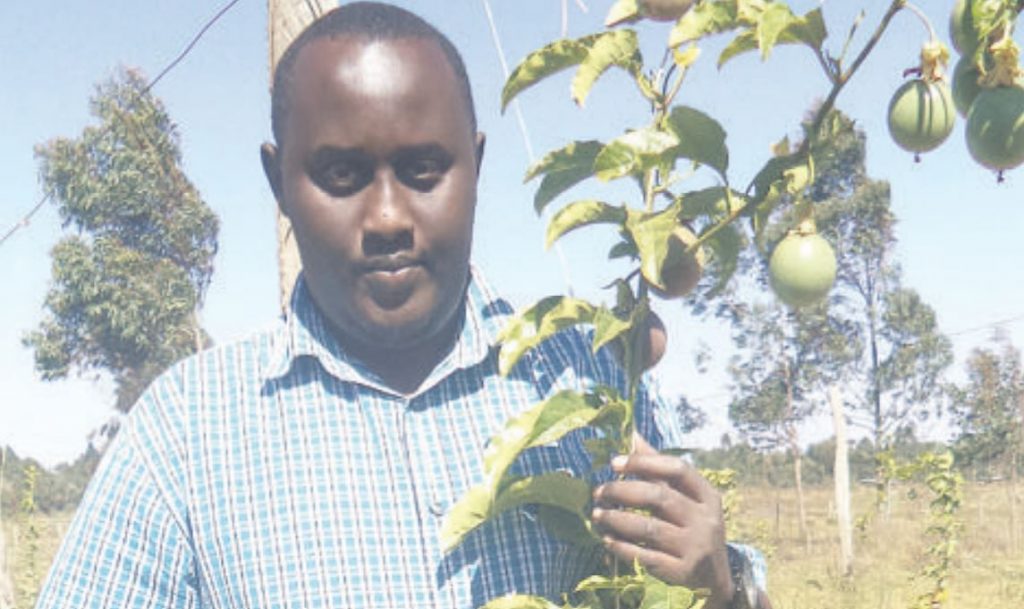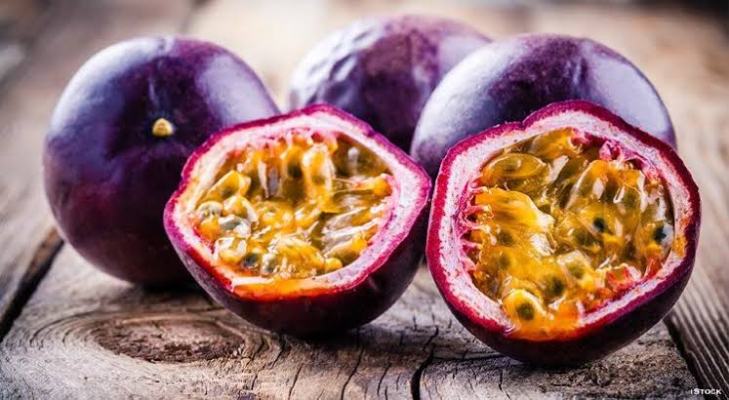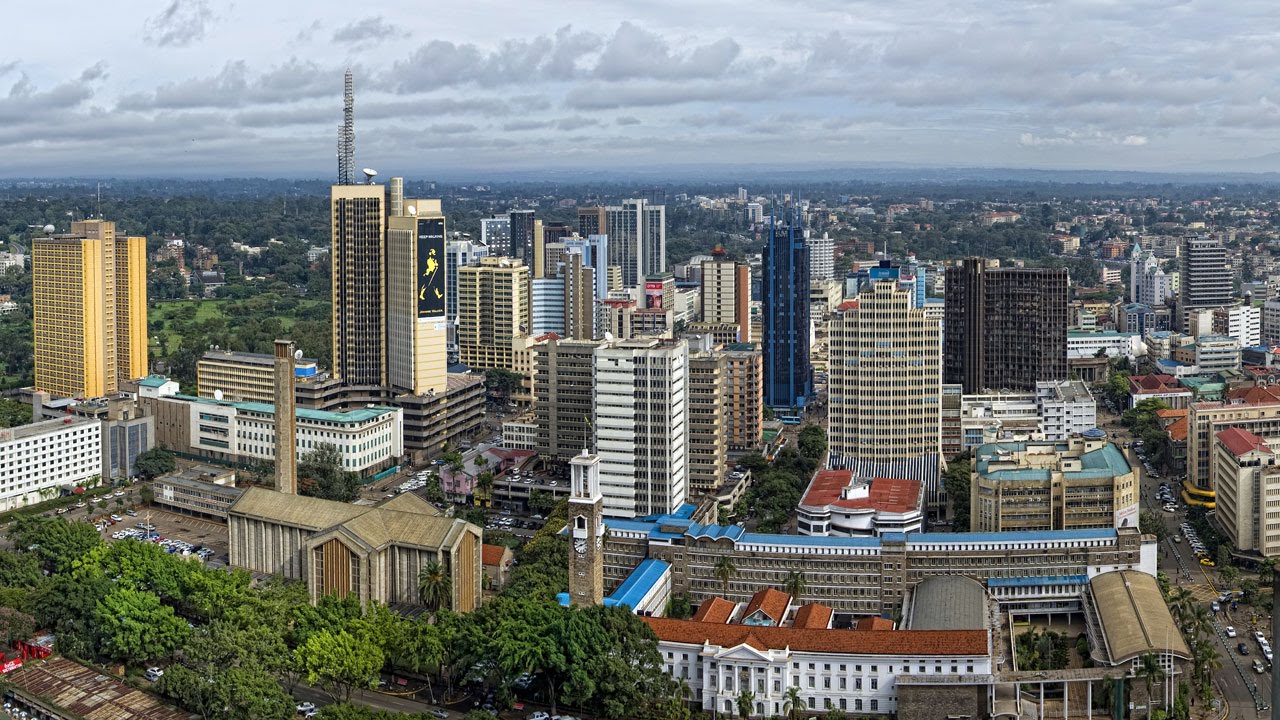Fifteen kilometres from Kenyan town of Eldoret town, on the Eldoret-Kapsabet Road, sits Gregory Koech’s farm, on which he grows passion fruits.
The 29-year-old grows the crop on the two-acre farm. He plans to increase the acreage from the current two to five acres.
The farmer, a Bachelor of Commerce graduate majoring in marketing, says he started carrying out this kind of farming in 2015, with a capital of KSh200,000 (UShs7.1m).
“I started my passion fruit farming project in phases, the idea was to test the market before rolling out massive production phases,’’ he says.
He reveals that he started with 1,700 seedlings, which he bought from a nursery in Iten.

Before embarking on passion fruits farming, he used to grow wheat and maize. However, due to high cost of production of the two cereal crops, he made up his mind to embark on the new venture.
“I used to grow maize and wheat before, but the losses I incurred in 2015, and high cost of production of wheat, which requires a lot of mechanisation, and poor prices, made me to shift to horticulture,’’ says the farmer, who also grows tomatoes, cabbages, capsicum and keeps a few dairy cows in his farm.
He says that before growing seedlings, he ensures that his farm is well tilled. He adds that the holes used to grow the passion fruits ought to be dug with a space of 3m by 2m and should be dug 2 feet deep.
Some of the management practices which should be carried out in the field, according to him, include weeding, which is done to remove weeds which affect the growth of the crops.
Pruning is another practice that should be done, in order to remove unwanted shoots.
“This is normally carried out on daily basis in the farm. We also do spraying of the passion fruit plants on a weekly basis. This helps to reduce pests and diseases,’’ says the farmer, who grows purple passion fruits variety.
Apart from that, he says that they apply top-dressing fertilisers, a practice he says they do monthly.
“We use both local manure from our farm and CAN and NPK fertiliser, which we do it on a monthly basis,’’ says Koech, who, apart from being a farmer, also runs an online marketing company in Nairobi.
He reveals that he spent around KSh100,000 (UShs3.58m) per acre.
“The cost of production of one seedling up to the time to harvest is KSh120 (UShs4,302) and I planted 1,700 seedlings in two acres. The produce per acre vary due to a lot of factors, but well managed farm can produce more than 700kgs per week,’’ he says, adding that they harvested 300kgs of the fruits per acre initially, but later, the produce increased to 600kgs per week, per acre.
The farmer says that so far, they have not experienced any disease in the farm, which affects the crop.
Nevertheless, he reveals that there are some of the challenges that he has encountered in the venture. One of the challenges that the farmer cites, include getting the right hybrid seedlings.
“We got them from far. Since I am in Nairobi, and my farm is in Eldoret, so I am a tele-farmer and being a tele-farmer, there are a lot of challenges, but I decided to outsource farm management services from agribusiness consultants based in Eldoret,’’ reveals the farmer.
He says that he sells the produce at a price of KSh100 (UShs3,586) per kilo to clients who export to overseas. “We have clients who export to UK and other export markets, and also, we have clients who buy and sell locally.
“We sell at KSh100 (UShs3,586) per kg and to local market at KSh70 (UShs2,510) per kg,’’ says the 29-year-old. When he produces 300kgs per week and sells the produce to the local market at KSh70 (2,510), he can make KSh21,000 (UShs753,038), weekly.
But if he sells to a company that exports to UK, at a price of Sh100 per kilo, he can make approximately KSh30,000 (UShs1m) per week translating to UShs4m per month.
Nevertheless, if the farmer produces 600kgs every week, he can make from KSh42,000 (UShs1,507,225)- KSh60,000 (UShs 2,153,179) per week.
He advises those who would like to venture into passion fruits farming to consult agribusiness consultants and those who have done it before, and who can advise them.
He also advises them to have business plans and do analysis. His future plan is to ensure that he exports his own produce directly, without engaging the services of middlemen. In addition, he plans to grow the crop in a large farm which goes up to twenty acres and do value addition to the produce.
Credit: The Standard






encouraging i need more ideas
It is a serous business worth practicing
I would like to trade with you, am in Uganda 0784973340